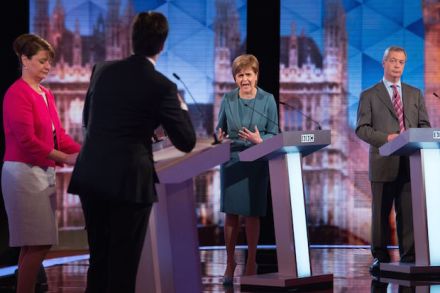Listen: The Spectator’s verdict on the opposition leaders’ TV debate
Ed Miliband managed to surpass expectations in tonight’s opposition leaders’ debate. In this View from 22 podcast special, Fraser Nelson, James Forsyth, Isabel Hardman and I discuss the final televised debate with the party leaders — minus David Cameron and Nick Clegg. Did Nigel Farage target his core base once again? How successfully did Nicola Sturgeon deal with Ed Miliband’s attacks? And did Natalie Bennett and Leanne Wood manage to have their voices heard? You can subscribe to the View from 22 through iTunes and have it delivered to your computer every week, or you can use the player below:





















